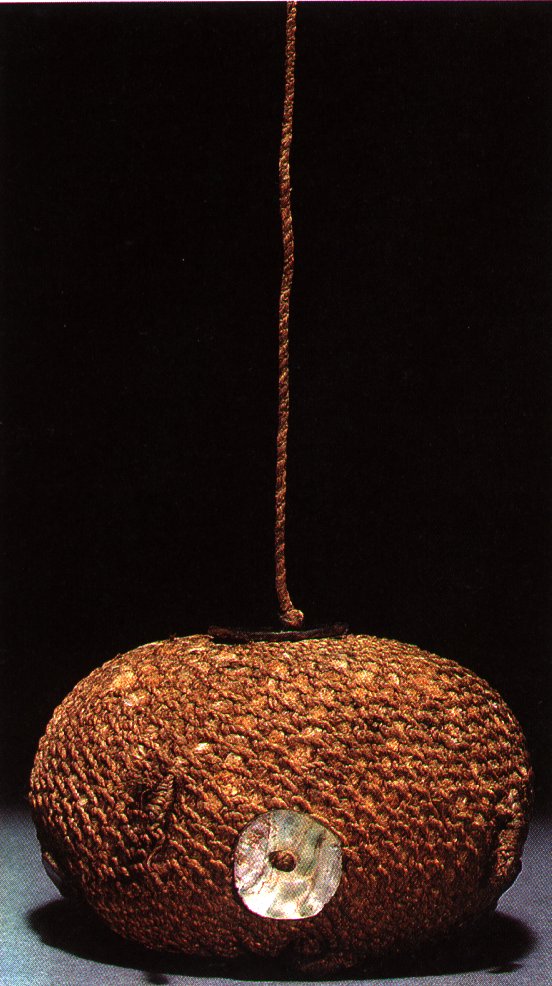|
Popo, pôpo
Popo: 1. To put
something into something else, for instance, stones in a
boat before going fishing. 2. To enter, to go in;
he-popo-mai kiroto ki te hare, he enters the house. 3.
Bundle, bag made of leaves; to make a bundle, a parcel, to
leave something in a bundle, a parcel. Pôpo: ball; to
make small balls: kete pôpó ki'ea, small basket with
balls of coloured earth. Popohaga, to dawn;
he-popohaga, dawn breaks (one does not say: i te
popohaga, but: i te po-á). Vanaga.
1. Waves which strike one another. P Pau.:
po-karakara, to strike the hands together. Mgv.:
po-kara, to clap the hands loudly and gently in
alternation. Ta.: popo, to clap the hands. 2. To wrap
up, to bundle, to preserve, to put in safety. Pau.:
hakapopo, to make into a ball. Mgv.: popo, to
take care of a fish net. 3. Pau.: popo, ball, sphere.
Mgv.: popo, ball. Ta.: popo, id. Mq.: popo,
id. Ha.: popo, id. Popohaga, morning; popohaga
atatehe, id. Mq.: popoui, id. Popokai (popo
2 - kai 4): hare popokai, store-house.
Popopopo, to deteriorate. P Mgv.: popopopo,
entirely rotten, decayed. Mq.: popo, worm-eaten,
decayed. Poporakau (popo 2 - rakau 2)
store, warehouse. Churchill. |

